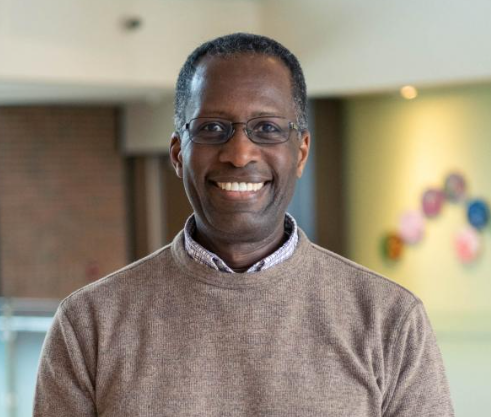Relational Wisdom (RW) is an Outpouring of the Gospel
Relational Wisdom is a natural outpouring of the Gospel message. The Gospel, meaning “good news,” is the central message of Christianity. It tells us that God created us in His image and designed us to reflect His perfect love and character by living according to His commands (Genesis 1:26 ESV). However, every human being has fallen short of that perfection and pursued their own desires and goals rather than serving God (Romans 3:23 ESV). As a result, God’s justice requires that we pay for our sins by being eternally separated from Him. (Matthew 25:41-43 ESV).
But there is good news; God is radically relational and perfectly wise. In His great love and mercy, He sent His only Son, Jesus Christ, to pay for our sins by dying on the cross (John 3:16-17 ESV). He then raised Jesus back to life to show that His sacrifice paid our debt in full and opened the way for us to be reconciled to God and enjoy Him forever (Romans 7:4 ESV, Romans 8:11 ESV, Romans 8:34 ESV, Colossians 1:18-22 ESV).
RW teaches about the reconciling power of the Gospel.
The reconciling power of the Gospel can also overflow into our human relationships. John 13:34 ESV tells us that “A new commandment I give to you, that you love one another: just as I have loved you, you also are to love one another.” Relational wisdom is an outpouring of the Gospel. As the Gospel overflows in our lives, it inspires and empowers every aspect of relational wisdom.
RW teaches about God-awareness and God-engagement.
The first outpouring of the Gospel occurs when Jesus makes us God-aware by sending the Holy Spirit to renew our hearts and minds so that we can know, value, and love God (Acts 26:15-18 ESV, Ephesians 3:14-19 ESV, John 14:15-17 ESV, Ephesians 4:22-24 ESV, Titus 3:5 ESV). As we become aware of God’s love and mercy, we are moved to become God-engaged. His grace enables us to worship Him in spirit and truth, to glorify Him with trust and obedience, and to delight in imitating Him (John 4:23-24 ESV, Ezekiel 36:26-27 ESV, John 8:29 ESV, John 14:23 ESV, Romans 12:2 ESV, Ephesians 5:1-2 ESV).
RW teaches that God-awareness leads to self-awareness and self-engagement.
God-awareness also opens the way for true self-awareness. As we come to know the holiness of God, we are able to know ourselves more accurately. We see our sin and realize how empty and miserable we are when we live for ourselves (Job 42:1-6 ESV, Isaiah 6:1-5 ESV, Luke 5:8 ESV). This leads us to humble ourselves, turn from our self-absorbed lives, and trust in Jesus as our Savior (Romans 2:4 ESV, Acts 16:29-34 ESV).
RW teaches us about the many blessings we have in Christ.
God also opens our eyes to see His many blessings: He has forgiven our sins, adopted us as dearly loved children, and entrusted us with gifts and opportunities to know and serve Him (1 Corinthians 1:30 ESV, 1 Corinthians 6:9-11 ESV, Romans 8:15 ESV, 2 Corinthians 5:17 ESV, Ephesians 2:10 ESV). God-awareness and self-awareness lead to self-engagement. As we are filled with God’s Spirit and united with Him through Christ, we are inspired and empowered to break free from the slavery of sin, to develop self-discipline, and to grow in godliness.
Relational Wisdom helps us understand others’ perspectives and needs.

If we want to have healthy relationships with others, it is essential that we seek to understand their perspectives and needs. This is particularly important when we encounter people who think, act or believe differently than we do. As followers of Christ, we are called to love and serve everyone, regardless of their background or circumstances.
Matthew 5:43-45 ESV “You have heard that it was said, ‘You shall love your neighbor and hate your enemy.’ But I say to you, Love your enemies and pray for those who persecute you, so that you may be sons of your Father who is in heaven. For he makes his sun rise on the evil and on the good, and sends rain on the just and on the unjust.”
James 2:8-9 ESV “If you really fulfill the royal law according to the Scripture, “You shall love your neighbor as yourself,” you are doing well. But if you show partiality, you are committing sin and are convicted by the law as transgressors.”
Relational Wisdom is about seeking others’ highest good.
Relational wisdom is not just about being kind or polite to others; it is about seeking their highest good, even if it costs us something. It is about speaking the truth in love, seeking reconciliation when there is conflict, and forgiving those who have wronged us.

Ephesians 4:15 ESV “Rather, speaking the truth in love, we are to grow up in every way into him who is the head, into Christ.”
Matthew 18:15-17 ESV “If your brother sins against you, go and tell him his fault, between you and him alone. If he listens to you, you have gained your brother. But if he does not listen, take one or two others along with you, that every charge may be established by the evidence of two or three witnesses. If he refuses to listen to them, tell it to the church. And if he refuses to listen even to the church, let him be to you as a Gentile and a tax collector.”
Colossians 3:13 ESV “Bearing with one another and, if one has a complaint against another, forgiving each other; as the Lord has forgiven you, so you also must forgive.”
Bringing It Home: Relational Wisdom is the Gospel in action.
In conclusion, relational wisdom is a natural outpouring of the gospel message. The good news of Jesus Christ reconciles us to God and to one another, inspiring and empowering us to live in a way that reflects God’s perfect love and character. As we become more God-aware, self-aware, and other-aware, we are moved to engage with the world around us in a way that seeks the good of others and glorifies God. Let us embrace this wisdom and put it into practice in our daily lives, so that we may be a light to the world and a witness to the power of the gospel.
Reflection Questions
- What is the central message of the Gospel, and how does it relate to relational wisdom?
- How does God-awareness lead to self-awareness and self-engagement, and what are some of the benefits of this process?
- Why is it important to seek to understand others’ perspectives and needs, and how can we apply this principle in our relationships with those who are different from us?
- What are some practical examples of how relational wisdom involves seeking others’ highest good, and why is this important for healthy relationships?
Would you consider joining our Relational Wisdom 360 Group Coaching Program?
The Relational Wisdom 360 (RW360) Program is a comprehensive approach that can help you understand your emotions, identify the issues underlying them, and move towards a healthier lifestyle.
Discovering Relational Wisdom, created by Ken Sande, founder of Peacemaker Ministries and RW360, is available now! James Long Jr., an Advanced Relational Wisdom Instructor, will lead 8 group coaching sessions, where you can learn valuable relational wisdom skills to help build your relationships and reduce conflict. With the addition of the RW Acrostics to accelerate skill development and personal growth, practical life applications, along with demonstration videos, this is one opportunity you do not want to miss out on!
Limited spots are available at a special discount for the month of March – join today!
Follow this link now to learn more about our membership and group coaching program!


